Bridging China and the World: CEIBS Insights 2019 Executive Reception Hosted in Beijing
June 20, 2019. Beijing – Following on the success of the event at CEIBS Shanghai Campus, a second CEIBS Insights 2019 Executive Reception was hosted today in Beijing on the theme of “China and the World: New Era and New Impetus”.
CEIBS Vice President & Dean Ding Yuan chaired the reception, which included a keynote speech by CEIBS Professor of Economics Wu Ho-Mou. The event was attended by European Union Ambassador to China Nicolas Chapuis, officials from the EU Division of Department of European Affairs, Ministry of Commerce of the PRC and Ministry of Foreign Affairs of the PRC, and economic and commercial counsellors and representatives from European embassies in China. Together, they joined CEIBS professors and alumni in discussions on Europe-China cooperation and the future development of the two economies.
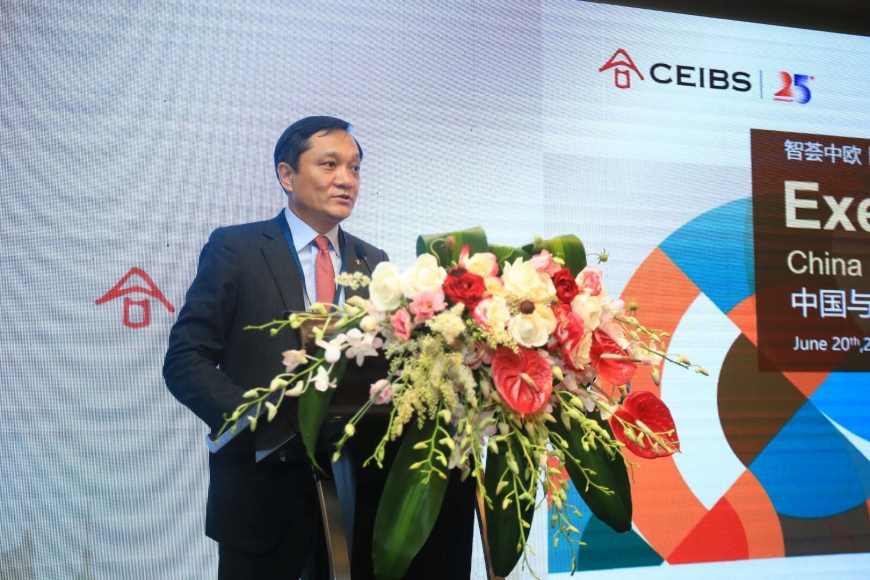
CEIBS Vice President & Dean Ding Yuan
In his opening address, Prof. Ding stated that, as the only business school in China co-founded by the Chinese government and the EU, CEIBS has remained committed to its special mission of providing a platform for high-level dialogues and exchange between China, Europe and the rest of the world. He cited as an example the CEIBS Insights 2018 Executive Receptions in Shanghai and Beijing, where CEIBS professors shared their ideas with government officials from China and the EU, representatives from relevant institutions, and CEIBS alumni who maintained partnerships with European companies. He also noted how these and other past events have served as a venue for in-depth exchange and discussion and to promote mutual understanding and cooperation.
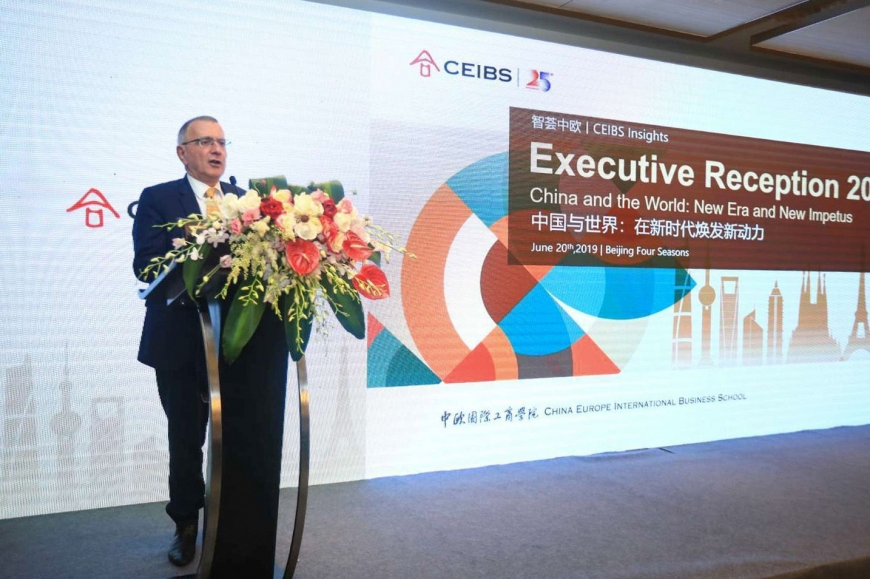
EU Ambassador to China Nicolas Chapuis
In his address, Ambassador Chapuis expressed his special feeling for CEIBS. Twenty-five years ago, as Consul-General of France in Shanghai, he recalled, he witnessed the establishment of CEIBS in Shanghai, a pioneering collaboration between the EU and the Chinese government and during that period led delegations to CEIBS many times. “I am glad to see that from the outset, CEIBS has expanded its global reach in tandem with China’s economic reform. Nowadays, it has evolved into a leading business school in Asia,” he said, “The development of CEIBS provides a snapshot of China’s reform and a vivid illustration of the Chinese dream. The EU will continue to give attention and support to its development. We hope CEIBS will establish itself as a centre of excellence, where Chinese and European economists can teach, communicate and transmit knowledge so as to realise more and bigger dreams.”
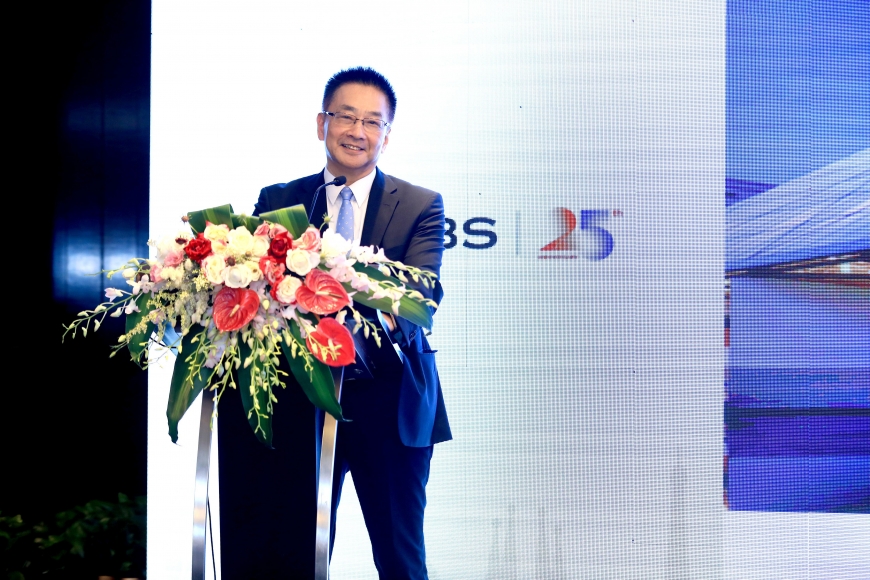
CEIBS Professor of Economics Wu Ho-Mou
Prof. Wu then delivered a keynote speech titled “Reform and Internationalisation of China’s Bond Market”, in which he emphasised how China’s reform and opening-up policy, particularly in the financial service sector, has brought China closer to the outside world, and noted how China’s bond market has grown tenfold to $12 trillion (USD) over the past decade, ranking #3 in the world. In recent years, he said, China’s central bank has improved liquidity in the bond market and promoted the free conversion of RMB with various monetary tools. Furthermore, Prof. Wu described how China’s bond market has progressed toward international standards as the Chinese government has expanded market access, diversified the base of investors, removed quota restrictions, and introduced more hedging tools. The Bond Connect Programme, in particular, he pointed out, was kick started in 2017 to attract foreign investors, who have since brought to China the biggest inflow of foreign capital in the world among emerging markets. At the same time, he added, China is pushing ahead with offshore RMB trading.
According to Prof. Wu, since China’s bond financing accounts for only a small share of in its total social financing, a broad gauge of China’s lending and liquidity, and the value of Chinese bonds held by foreigners is still relatively small, China’s fixed-income market holds a huge potential for further growth. He also stated that the future reform of China’s bond market should focus on promoting information sharing among bond custodians, bringing in international rating agencies, issuing government bonds regularly based on market demand, reducing implicit government guarantees, and strengthening information disclosure and corporate governance to facilitate risk pricing. As further and deeper reform in China’s financial service sector gathers momentum, he concluded, these steps could help boost market vitality and serve as a benefit to China and the world.
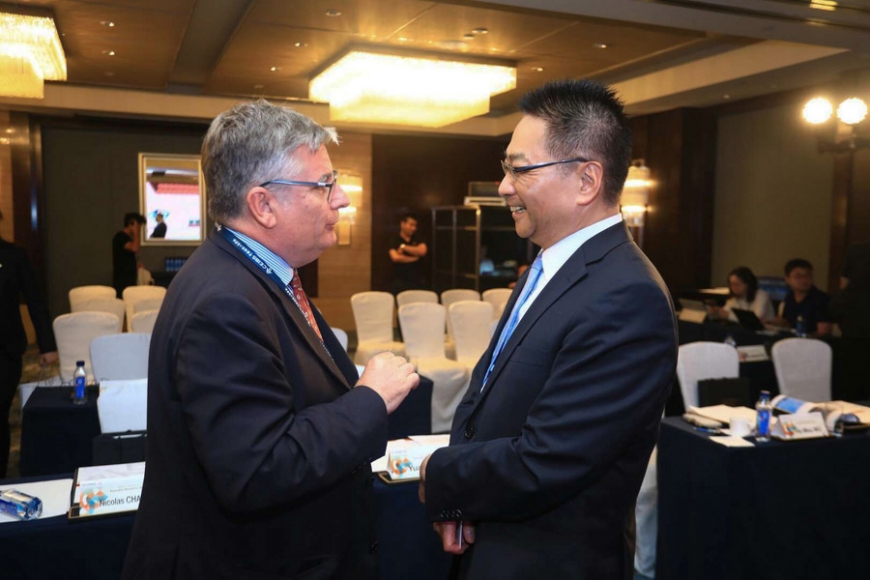

In-depth Discussions
Following the speeches, Prof. Wu joined Prof. Ding and other guests in an in-depth discussion on local government bonds, bond risk pricing, corporate bonds, and private enterprise financing.
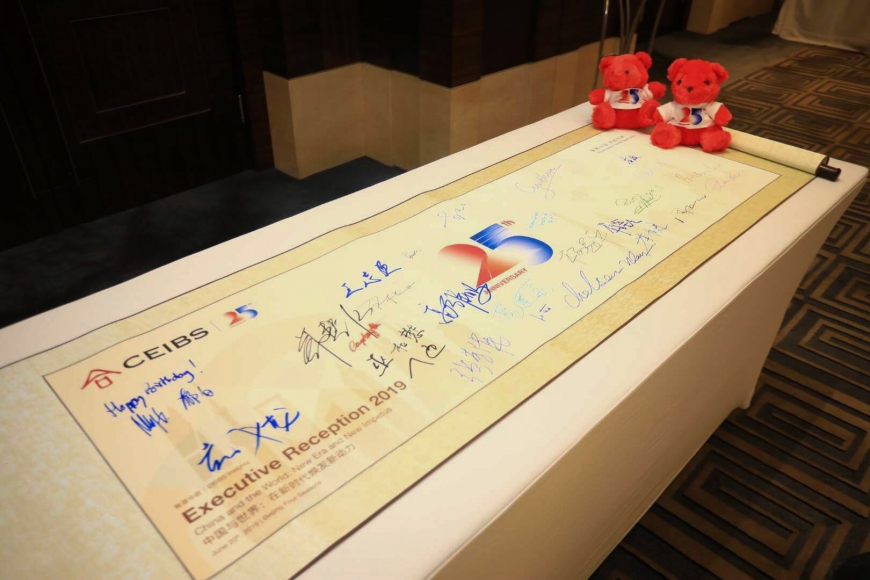

Traditional Chinese Scroll
In order to highlight the spirit of CEIBS and the characteristics of traditional Chinese culture, the school also invited guests to sign a traditional Chinese scroll and introduced a smart calligraphy writing desk developed by the Chinese Academy of Sciences to provide them with an ink-free writing experience. A billboard was also put up on site to explain the origin and significance of CEIBS’ culture of “合” (hé, which means “mutual understanding”). Under the guidance of a calligrapher, guests wrote Chinese characters like “合”, “合作” (cooperation), and “中欧25岁生日快乐” (Happy 25th Birthday to CEIBS) in calligraphy on the smart desk in celebration of the school’s 25th anniversary.
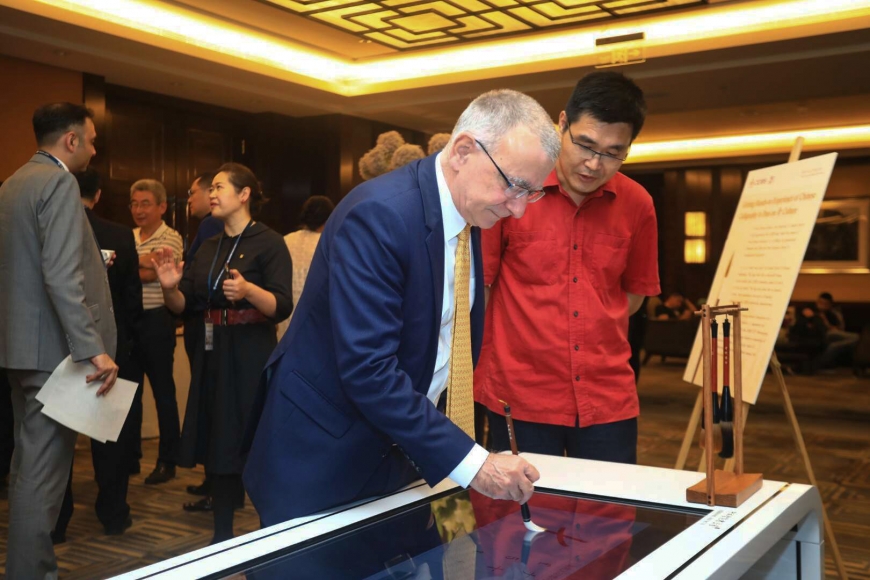

Smart Writing Desk












